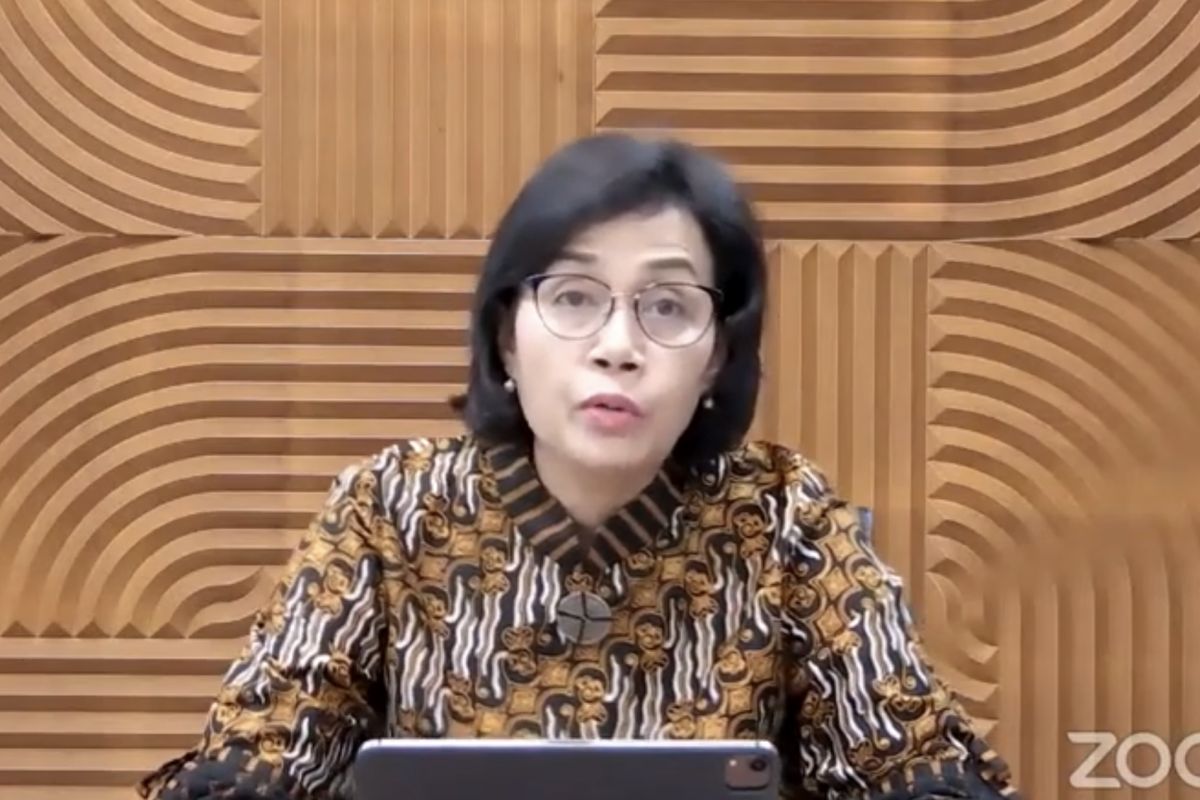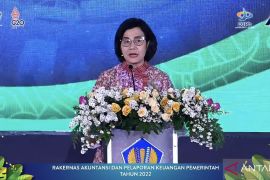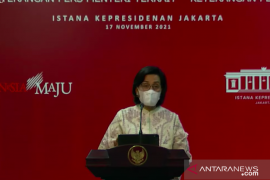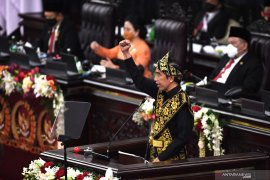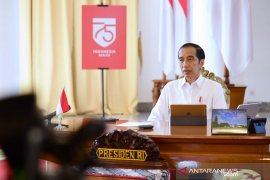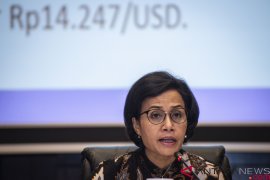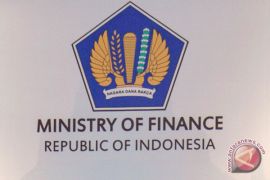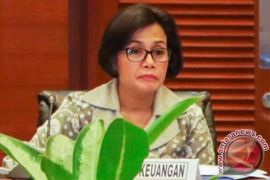All stakeholders, including regional governments, will play a very strategic role in safeguarding and recovering the national economy and conducting structural reformsJakarta (ANTARA) - The Indonesian government has set a budget deficit target of Rp808.2 trillion-Rp879.2 trillion, or 4.51-4.85 percent of the national gross domestic product (GDP), for 2022.
“With the deficit of 4.5-4.8 percent, the 2022 financing will be kept more prudently,” Finance Minister Sri Mulyani Indrawati said at the 2021 central development coordination meeting in Jakarta on Thursday.
The 2022 fiscal macro posture covers a state income target of Rp1,823.5 trillion-Rp1,895.4 trillion, or 10.18-10.44 percent of the GDP, she added.
State income will comprise tax receipts of Rp1,499.3 trillion- Rp1,528.7 trillion, or 8.37-8.42 percent, non-tax state revenues of Rp322.4 trillion-Rp363.1 trillion, or 1.8-2.0 percent, and grants of Rp1.8 trillion-Rp3.6 trillion, or 0.01-0.02 percent, the minister disclosed.
State spending is set to reach Rp2,631.8 trillion-Rp2,775.3 trillion, or 14.69-15.29 percent of the GDP, Indrawati said.
State spending will comprise central government spending of Rp1,856 trillion-Rp1,929.9 trillion, or 10.36 percent-10.63 percent, and fund transfers to regions and village funds of Rp775.8 trillion-Rp845.3 trillion, or 4.33- 4.66 percent.
Indrawati said the government will make the composition more balanced so that it will reflect a budget strategy that promotes human resources, develops productive infrastructure, protects vulnerable citizens, and supports an efficient, effective, and professional bureaucracy.
The 2022 budget financing target will be achieved through net debt of 4.81-5.8 percent and investment of minus 0.3-minus 0.95 percent, she disclosed and pegged the debt ratio at 43.76-44.28 percent, with a median of 41.05 percent.
She further said the theme of the government’s macroeconomic projections and the draft fiscal policy (PEM PPKF) is economic recovery and structural reforms conducted through human capital improvement, economic transformation, and fiscal reforms.
She said economic recovery in 2022 will remain highly dependent on the government’s efforts to focus its programs on driving the public and the business world to become healthier and recover from the pandemic.
“All stakeholders, including regional governments, will play a very strategic role in safeguarding and recovering the national economy and conducting structural reforms,” she added.
Related news: Structural reforms to boost economic growth: Finance Minister
Related news: Finance Ministry wins Climate Bonds Awards 2021
Translator: Astrid F H/Suharto
Editor: Gusti Nur Cahya Aryani
Copyright © ANTARA 2021
